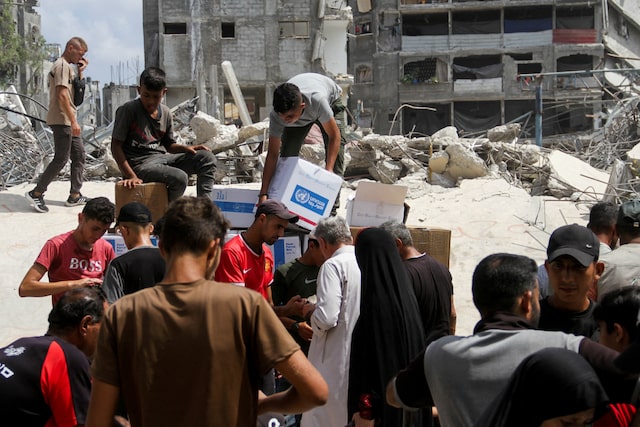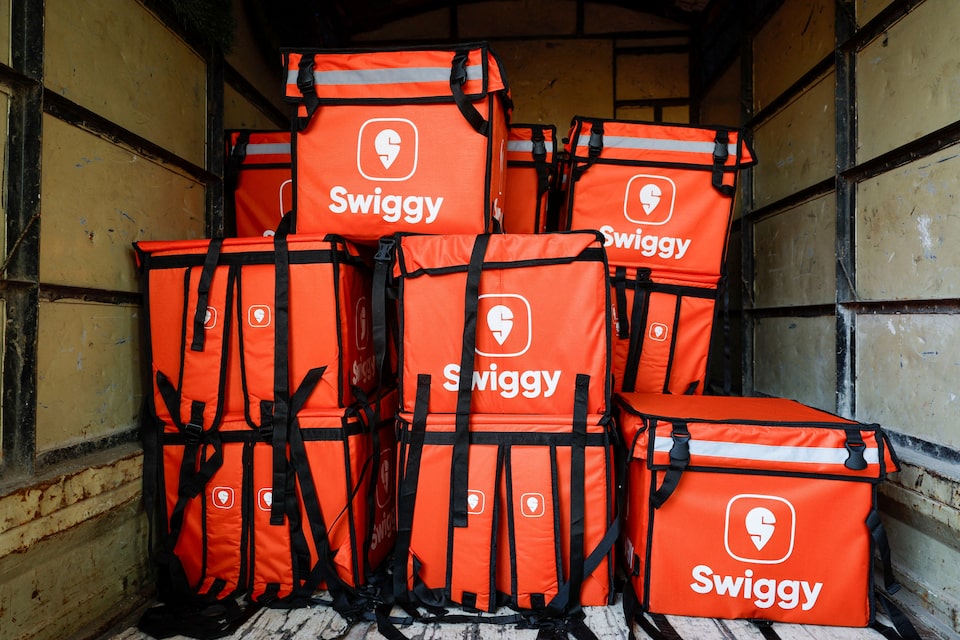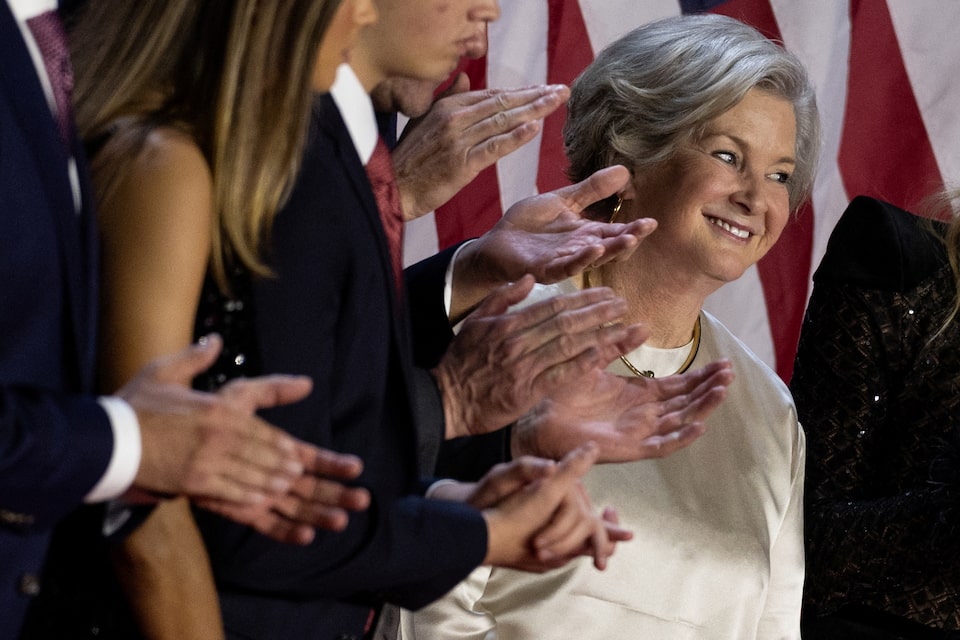Palestinians gather to receive aid, including food supplies provided by World Food Program (WFP), outside a United Nations distribution center, amid the Israel-Hamas conflict, in Jabalia in the northern Gaza Strip, August 24, 2024. REUTERS
Summary
- Heads of WFP, and UNICEF asked Netanyahu to help civilians in Gaza, West Bank, Lebanon
- WFP and UNICEF ask Netanyahu to appoint ‘high-level’ contact to address aid problems
- Israeli military needs to show it respect, protect, facilitates aid, say UNICEF, WFP
NEW YORK, Oct 21 (Reuters) – The heads of the United Nations World Food Programme and U.N. children’s agency UNICEF have privately appealed to Israeli Prime Minister Benjamin Netanyahu for help “alleviating the suffering of countless civilians” in the Gaza Strip, West Bank and Lebanon, according to a letter seen by Reuters on Monday.
“Effective and meaningful humanitarian action is possible with your political will and commitment,” wrote UNICEF Executive Director Catherine Russell and WFP Executive Director Cindy McCain in the previously unreported letter dated Oct. 11.
Netanyahu’s office did not immediately respond to a request for comment on the letter.
The amount of aid entering Gaza has plummeted to its lowest level all year, according to U.N. data. In addition, a global hunger monitor has warned, and the U.N. has accused Israel of denying and impeding dozens of attempts this month to deliver aid, particularly to Gaza’s north.
Israel began a wide military offensive in northern Gaza earlier this month. The United States said last week it was watching to ensure that its ally’s actions on the ground show it does not have a “policy of starvation” in the north.
Israel has said there is not a lack of aid in Gaza and accused Hamas of hijacking the humanitarian assistance. Hamas has repeatedly denied Israeli allegations that it was stealing aid and says Israel is to blame for shortages.
“We call on your support, as Prime Minister, to ensure that the government of Israel upholds its obligations and commitments to enable effective emergency relief operations, and to protect the safety and security of our staff and the civilians they serve,” Russell and McCain wrote.
They sent their letter just after the first anniversary of the deadly Oct. 7, 2023 attacks on Israel by Palestinian militants Hamas. Those attacks triggered Israel’s retaliation in the besieged Gaza enclave, which has been plunged into what U.N. officials describe as a humanitarian catastrophe.
The U.N. appeal also came two days before the United States told Israel it must take steps within 30 days to improve the humanitarian situation in Gaza or face potential restrictions on U.S. military aid.
Russell and McCain – both Americans who were put forward for their top U.N. jobs by U.S. President Joe Biden – listed six areas where they want “clear and concrete commitments” from Netanyahu. They asked Netanyahu to appoint a “high-level focal point” for them to address the issues they raised in the letter.
‘RULES OF ENGAGEMENT’
They called on all parties to exercise maximum restraint to protect civilians and critical civilian services. They also wrote that the U.N. and aid groups “need unequivocal security assurances to ensure a safe operating environment,” specifically streamlined operating procedures with the Israeli military (IDF).
“The rules of engagement and their implementation in practice, in the Gaza Strip, the West Bank, and Lebanon, must reflect the IDF’s obligation and commitment to respect, protect, and facilitate humanitarian action,” said Russell, a former senior aide to Biden, and McCain, Biden’s former ambassador to the U.N. agencies for food and agriculture in Rome.
They urgently appealed for an effective humanitarian notification system that the Israeli military “acknowledges and supports,” citing the success of using area-specific pauses in fighting to allow for the polio vaccination of children in Gaza.
“We request this be applied consistently to facilitate humanitarian action at scale,” Russell and McCain wrote.
The United Nations needs action to combat the breakdown of law and order in Gaza, they said, asking for all access points to be opened, expanded operating hours, approval of more routes within Gaza and urgent road repairs.
The U.N. has repeatedly complained of obstacles to getting aid into Gaza and distributing it, blaming impediments on Israel and lawlessness. Health authorities in Gaza say more than 42,000 people have been killed and almost the entire population of 2.3 million displaced.
At least 312 aid workers, including 230 U.N. staff, have been killed in Gaza, according to U.N. figures.
Commercial goods must start flowing again, wrote McCain and Russell, because “humanitarian assistance alone cannot sustain two million people.” Israel has stopped processing requests from traders to import food to Gaza, Reuters reported last week.
Their final request was for all parties work toward securing a ceasefire across Israel, the Gaza Strip, and Lebanon, including the immediate and unconditional release of all hostages held by Hamas in Gaza for the past year.
The U.N. is also now dealing with a humanitarian crisis in Lebanon, where Israel has stepped its fight against Iran-aligned Hezbollah militants, conducting airstrikes in Beirut and launching a ground operation in Lebanon’s south on Oct. 1.
Reporting by Michelle Nichols in New York; Editing by Matthew Lewis





